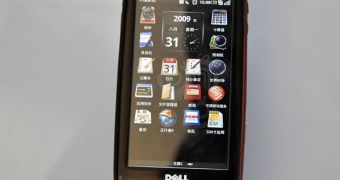Wireless carrier China Mobile announced not too long ago the launch of its first handsets powered by a home-made version of Google's Android operating system, which are called OPhones. The new handsets are expected to perform quite well on the market, much to the detriment of Apple's iPhone sales, yet to the delight of Marvell Technology, the company that developed the radio chips used inside China Mobile's devices.
According to a recent article on VentureBeat, the launch of China Mobile’s OPhone series represents a great deal for Marvell, which stated that it managed to put its solution inside almost all of the carrier's devices, and which worked for about two years on those chips. Considering the fact that China Mobile has a number of around 700 million subscribers (the largest carrier in the world in terms of subscriber number), this can be seen only as good news for the company.
The Marvell TD-SCDMA radio chip sported by the new handsets is the part that enables users to enjoy data transmission to and from their OPhones. China mobile is the only carrier that uses the TD-SCDMA standard for its 3G network, and it seems that Marvell is also the company that managed to put the TD-SCDMA radio in a single chip, something that should drive to a drop in smartphones' cost next year, VentureBeat notes.
“We were very committed as the only silicon solutions provider trying to do this. We believed in the long-term vision of China Mobile,” stated Weili Dai, co-founder of Marvell and head of its consumer and computing business unit. At the same time, she also stated that the chip maker was rather happy with the way the launch of the OPhones went.
Marvell has been affected by the financial downturn and the fact that it lost $111 million during the fiscal first quarter ended May 2. However, the company hopes that the deal with China Mobile will help it regain its foothold. Given the fact that OPhone is a home-developed solution, the handsets have great chances on the Chinese market, which means that the chip maker might have made the right choice.

 14 DAY TRIAL //
14 DAY TRIAL //